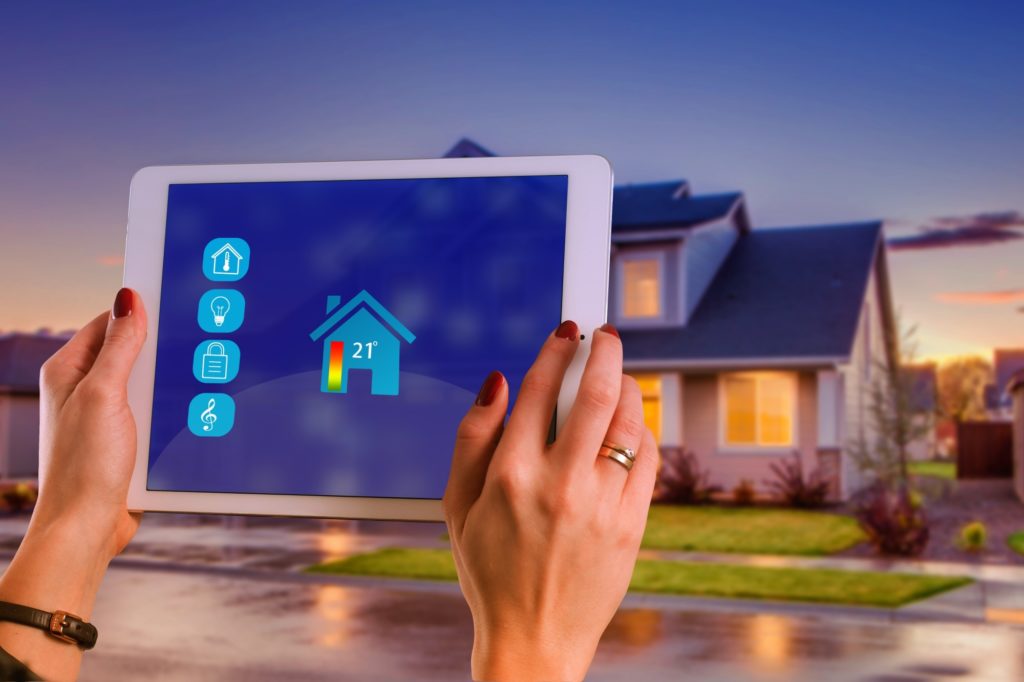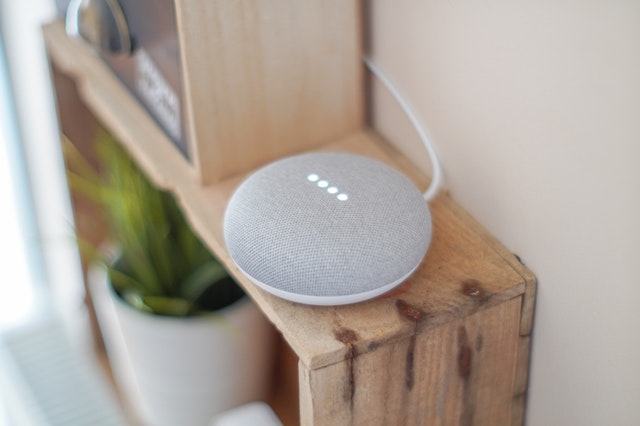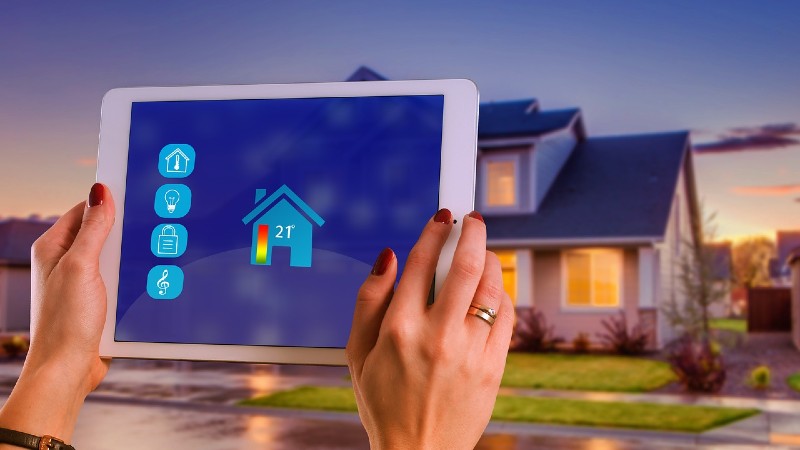Disclosure: This post may contain affiliate links, meaning we get a commission if you decide to make a purchase through our links, at no cost to you. Please read our disclosure for more info.
The integration of smart home devices into residential spaces is altering the narrative of property valuation and market appeal. Homeowners and potential buyers are recognizing the tangible benefits that come with the deployment of these technologies. By examining the specifics, we can comprehend the varied ways in which these innovations are adding value and transforming living environments.
In This Post:
Impact on Property Value and Marketability
Smart home devices, like thermostats and security systems, can increase a property’s value by 3% to 5%, an enticing proposition for sellers. A home valued at $500,000 might see an increase ranging from $15,000 to $25,000 due to these enhancements. This increase isn’t merely speculative. Buyers often appreciate the convenience, security, and energy savings associated with a smart home, allowing them to sidestep the cost and effort of retrofitting it themselves. Moreover, properties equipped with these features stand distinct in a competitive real estate market, attracting more potential buyers with their readiness for immediate, modern living.
The rental market also sees increased appeal. Technology enthusiasts tend to pay 10% to 15% more for properties that present integrated smart technologies. These features, ranging from automated lighting to advanced security, enhance property charm and push rental premiums, producing favorable returns for investors. As a result, property owners can recover the initial cost of these technologies, estimated between $2,000 to $6,000 and sometimes exceeding $10,000.
Exploring Specific Smart Devices
Smart appliances and systems not only enhance livability but also provide returns on investment. Smart thermostats, for instance, precisely adjust to user preferences, optimizing energy efficiency and reflecting an environmentally conscious lifestyle. This not only reduces energy bills but also boosts a property’s appeal during home appraisals and market analyses. Similarly, smart security systems bolster home safety, increasing property value. These systems offer real-time monitoring and remote access, catering to buyers’ desires for enhanced safety measures.
Smart Appliances: With an average ROI percentage around 11% higher than standard appliances, smart refrigerators, ovens, and washing machines are favorable additions. They offer convenient control and operational efficiency, often forming essential components of modern home life.
Smart Door Locks and Garage Door Openers: These systems provide keyless entry and remote access, enhancing both security and convenience for homeowners. As a result, potential buyers are often more inclined to consider properties that integrate these seamless control features, enhancing the perceived value.
Smart Fire and Carbon Monoxide Detectors: These safety devices, coupled with emergency alert technology, enhance household safety. Their integration into broader smart systems shows a commitment to modern safety standards, which can elevate property value.
Evaluating Property Upgrades with Smart Integration
Evaluating potential property upgrades often involves considering the integration of smart home devices that align with modern technological advancements. When deciding on enhancements, homeowners might investigate the balance between upfront investment costs and long-term benefits. For instance, installing smart appliances such as ovens or washing machines may initially seem costly; however, they could potentially enhance homeowner convenience and property allure. Additionally, incorporating a smart thermostat can lead to energy savings over time, contributing to overall property appeal by showcasing advanced energy-efficient features. These considerations are vital in deciding which upgrades could yield favorable long-term outcomes.
To further analyze the potential impact of these smart enhancements on property value, tools like a home value calculator can offer insights by simulating various renovation scenarios. This analysis can help homeowners make informed decisions regarding which smart technologies may offer the best return on investment.
Real Estate Market Dynamics and Future-Proofing
The real estate market is increasingly recognizing smart homes as future-proof investments. Equipped for ongoing technological advancements, these properties ensure adaptability for new devices. This not only appeals to tech-savvy buyers but also aligns with pathways for sustained value growth.
Adjusters have begun acknowledging the impact of smart home technologies on property value. The modern home’s approach to technology manifests in higher appraisal values, directly influenced by the presence of reputable smart home brands. While some experts advise against installing these technologies solely for resale, it is undeniable that when integrated thoughtfully, they promote convenience, lifestyle enhancement, and property market presence.
Some buyers may exhibit ambivalence towards highly tech-integrated homes, citing potential complexities or maintenance considerations. However, knowledgeable real estate agents can bridge this understanding gap, emphasizing user-friendly aspects and value-addition. With proper communication, agents can guide prospects through the strategic benefits of a smart-enabled home, ensuring a smooth transition into ownership.
Ultimately, the incorporation of smart home devices helps enhance living spaces, marking them as beneficial investments for owner-occupiers and investors alike. Through thoughtful integration, these devices offer not only a renewed appeal in the marketplace but also genuine increases in property functionality and sustainability.




